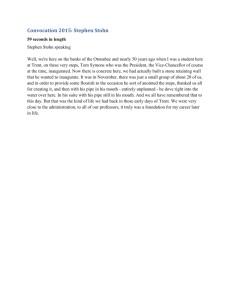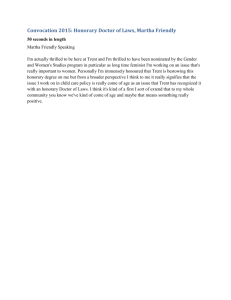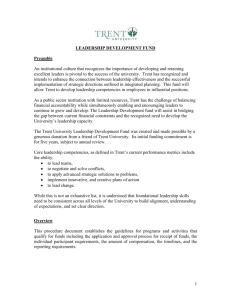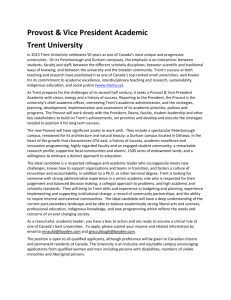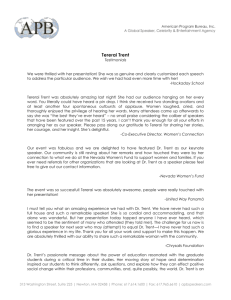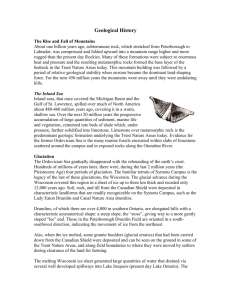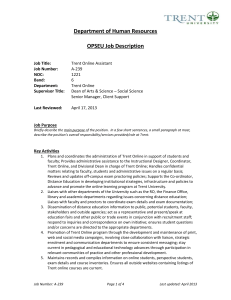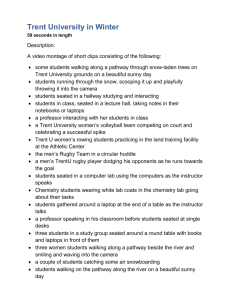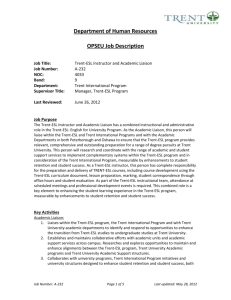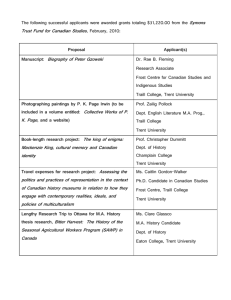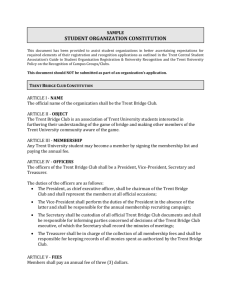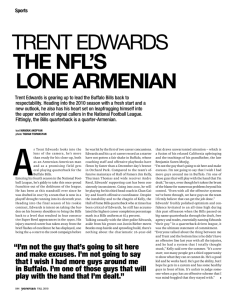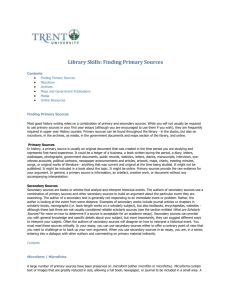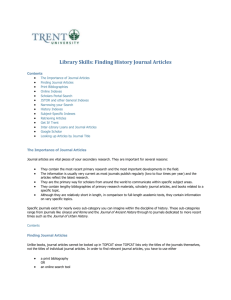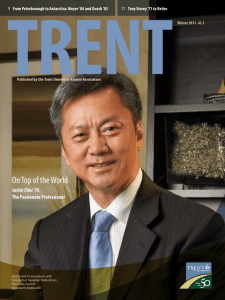Guidelines for the Use of Information Technology
advertisement
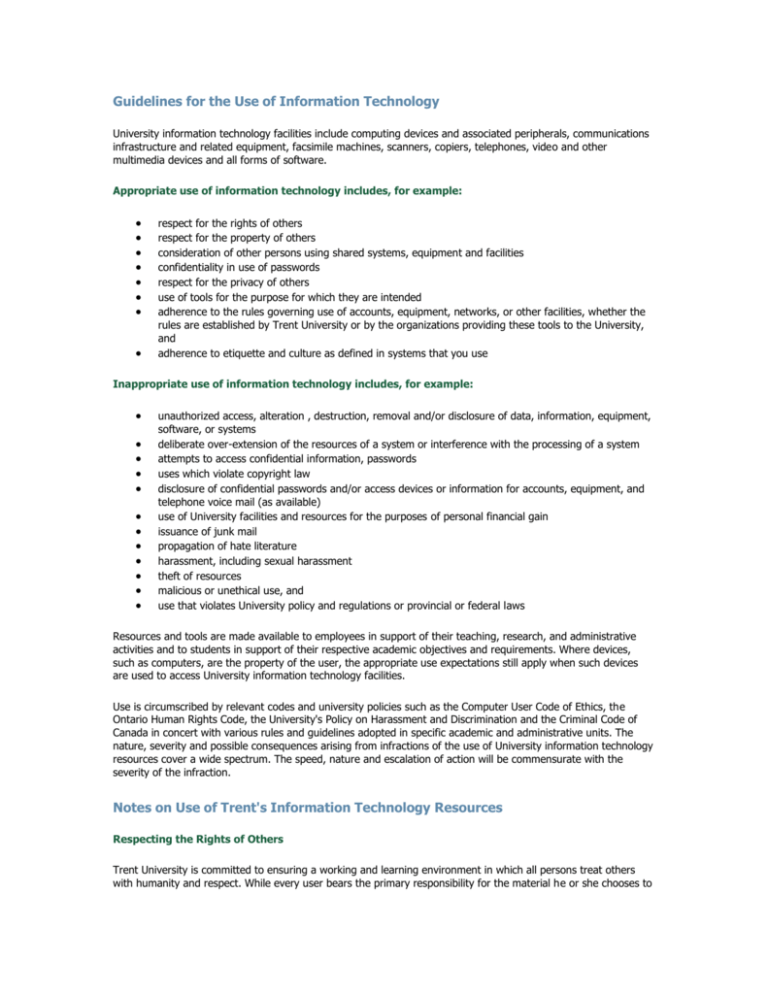
Guidelines for the Use of Information Technology University information technology facilities include computing devices and associated peripherals, communications infrastructure and related equipment, facsimile machines, scanners, copiers, telephones, video and other multimedia devices and all forms of software. Appropriate use of information technology includes, for example: respect for the rights of others respect for the property of others consideration of other persons using shared systems, equipment and facilities confidentiality in use of passwords respect for the privacy of others use of tools for the purpose for which they are intended adherence to the rules governing use of accounts, equipment, networks, or other facilities, whether the rules are established by Trent University or by the organizations providing these tools to the University, and adherence to etiquette and culture as defined in systems that you use Inappropriate use of information technology includes, for example: unauthorized access, alteration , destruction, removal and/or disclosure of data, information, equipment, software, or systems deliberate over-extension of the resources of a system or interference with the processing of a system attempts to access confidential information, passwords uses which violate copyright law disclosure of confidential passwords and/or access devices or information for accounts, equipment, and telephone voice mail (as available) use of University facilities and resources for the purposes of personal financial gain issuance of junk mail propagation of hate literature harassment, including sexual harassment theft of resources malicious or unethical use, and use that violates University policy and regulations or provincial or federal laws Resources and tools are made available to employees in support of their teaching, research, and administrative activities and to students in support of their respective academic objectives and requirements. Where devices, such as computers, are the property of the user, the appropriate use expectations still apply when such devices are used to access University information technology facilities. Use is circumscribed by relevant codes and university policies such as the Computer User Code of Ethics, the Ontario Human Rights Code, the University's Policy on Harassment and Discrimination and the Criminal Code of Canada in concert with various rules and guidelines adopted in specific academic and administrative units. The nature, severity and possible consequences arising from infractions of the use of University information technology resources cover a wide spectrum. The speed, nature and escalation of action will be commensurate with the severity of the infraction. Notes on Use of Trent's Information Technology Resources Respecting the Rights of Others Trent University is committed to ensuring a working and learning environment in which all persons treat others with humanity and respect. While every user bears the primary responsibility for the material he or she chooses to access, send, or display, the University's facilities may not be used in any manner to create, send or display material which contravenes the relevant policies or statutes. Censorship Trent University does not censor information available on our campus network but will investigate properly identified allegations arising from the University community and will comply with applicable federal and provincial laws to the extent that this is possible with University resources in order to comply with both the spirit and the substance of the law. Resource Management There are many practical reasons including network and storage resource constraints that would cause IT to limit the numbers, types and storage retention periods of various kinds of information, either temporarily or permanently. Similar decisions which might further restrict the information available on facilities not managed by CTS are made by local units, consistent with the intended usage of available information and the capacity of local facilities. Potentially Offensive Material No one should be involuntarily presented with information which the person transmitting it should reasonably know would be viewed by the recipient as offensive or insulting. Where a member of our community is presented, through the network, with offensive information without consent having been either sought or granted, CTS will investigate the incident and take appropriate action. Such action may include, for example, referring any information about the incident to the appropriate department or Officer of the University, or assisting the complainant in bringing action under the appropriate University policies. Relevant policies include the Computer Code of Ethics and the Harassment and Discrimination Policy, among others. Complaints about offensive and/or potentially illegal information being produced locally and distributed on the Internet will be investigated as a violation of the Computer User Code of Ethics, and the University may initiate criminal charges. Personal Privacy and Confidentiality The property of the University includes the facilities related to computing accounts and files and other aspects of the information technology network in a similar manner to the telephones, filing cabinets, desks, etc., which an employee uses in carrying out the duties of her or his job. Generally, with respect to computing accounts there is a presumption of privacy. While University employees may access computing facilities in the performance of their day-to-day duties, the University does not review nor monitor user accounts on a routine basis. Users should exercise care in the disclosure of personal information to all third parties when using Internet-based services outside the University. Integrity of E-mail It is essential that all users of information technology facilities and services at Trent recognize that the security and integrity of the Internet and the campus network are consistent with information delivery mechanisms being used within the university. It is possible, for example, to send and/or receive incorrectly addressed mail in a manner which makes it appear the message originated from a particular user. It is suggested, therefore, that users not send highly sensitive or confidential documents by electronic mail if they would not normally use oncampus surface mail or FAX to transmit them. These Guidelines are an adaptation of similar Guidelines governing appropriate use of Information Technology at other Universities in Ontario; they are not a replacement for the Trent University Computer Code of Ethics.
